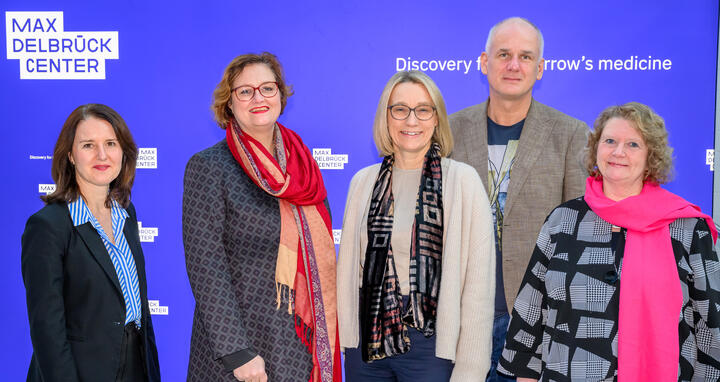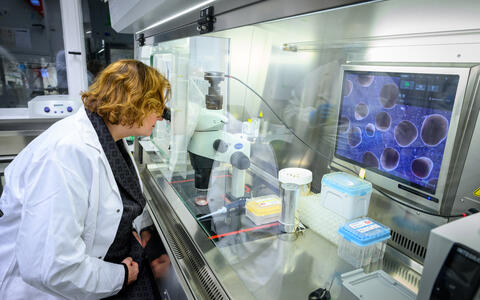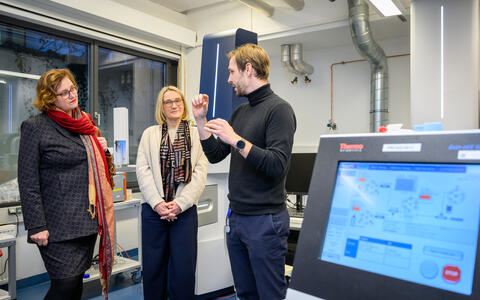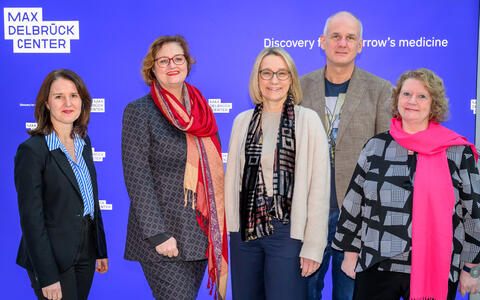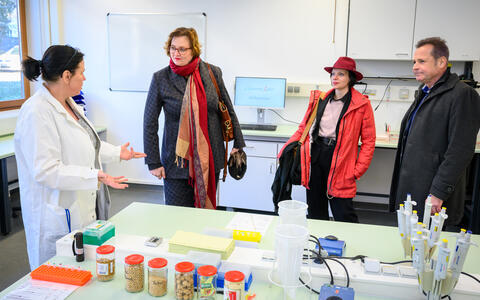Senator for Research visits Max Delbrück Center
Berlin's Senator for Higher Education and Research, Health and Long-Term Care, Dr. Ina Czyborra, met with the scientific director, Professor Maike Sander, the administrative director, Professor Heike Graßmann, and numerous researchers on January 10 to discuss possible joint strategies and synergies in Berlin's health research. Among other topics, the conversation touched upon plans for the proposed Einstein Center for Early Disease Interception.
The project, presented by Professor Nikolaus Rajewsky, a systems biologist at the Max Delbrück Center, and Professor Angelika Eggert, a pediatric oncologist at the Charité – Universitätsmedizin Berlin, is jointly supported by eleven Berlin institutions and aims to make a significant leap: moving from repair medicine to optimal prevention and cell-based interceptive medicine. The goal is to detect, intercept, or even prevent the development of diseases as early as possible. In this context, the consortium is also looking for partners and funding opportunities from industry. Everyone at the table agreed on one thing: it is essential to handle resources carefully, work collaboratively, and to expand, optimize, and strengthen the Berlin innovation ecosystem.
The potential of proteomics
In two laboratory tours and in conversations with the teams led by Dr Fabian Coscia and Dr Mina Gouti, both heading research groups at the Max Delbrück Center, the senator immersed herself in the world of biomedicine. Coscia presented the potential of high-resolution spatial proteomics, a field that is currently advancing rapidly, to the politician. The biologist is investigating how aggressive cancer cells manage to use their cellular neighborhood for their own purposes and what exactly happens during this interaction at the proteome level.
Equally spectacular are the projects of Mina Gouti's team. She is developing organoids that enable her team to study neuromuscular diseases and search for potential therapies – tailored to the individual patient. Looking through the microscope, Czyborra was able to catch a glimpse of the future of precision medicine as she observed neuromuscular organoids.
Before her visit to the Max Delbrück Center, the Senator had already toured the Life Science Learning Lab at Campus Buch – a joint facility of the Max Delbrück Center, the Leibniz Research Institute for Molecular Pharmacology, and Campus Berlin-Buch GmbH. The student laboratory enables around 14,000 children and teenagers annually to experiment in authentic laboratories on research topics such as the CRISPR/Cas gene scissors, chemistry, or systems biology.
Further information

